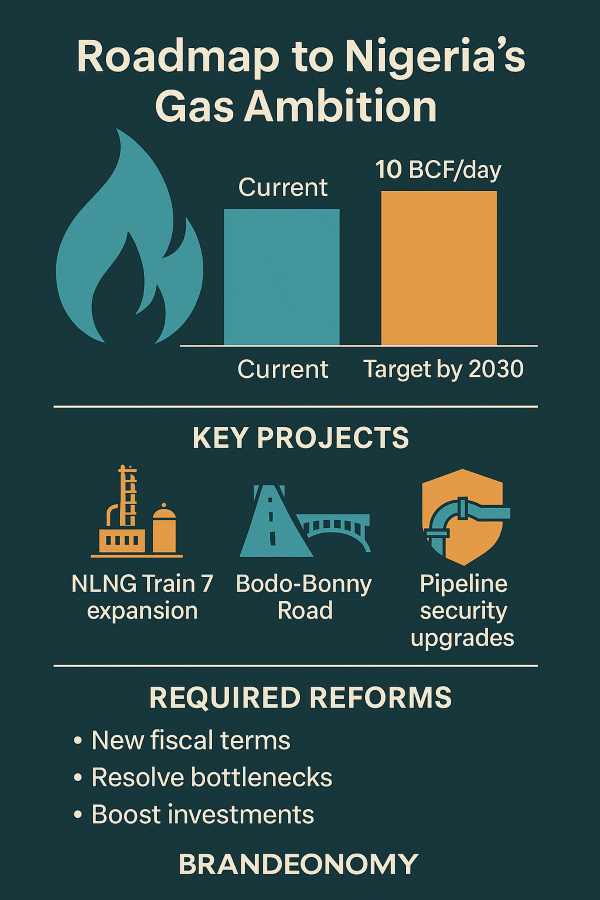Nigeria Targets 10 BCF Gas Production by 2030 Amid Energy Reforms

Nigeria has reaffirmed its ambition to produce 10 billion standard cubic feet (BCF) of gas per day by 2030, a target that could redefine its role in the global energy market while bolstering industrial growth at home.
Finance and Coordinating Minister of the Economy, Wale Edun, disclosed this during a strategic meeting with the management of Nigeria LNG Limited (NLNG) in Abuja, stressing that gas remains the backbone of President Bola Tinubu’s Renewed Hope agenda for economic transformation.
A Strategic Pivot in Energy Policy
Edun noted that Nigeria is moving beyond dependence on crude exports to unlock the full potential of its natural gas reserves—estimated at over 200 trillion cubic feet, one of the largest globally.
“We are building a competitive, investor-friendly environment where tax reforms, fiscal stability, and infrastructure financing create opportunities for the energy sector to thrive,” he said.
He assured stakeholders that Tinubu’s economic reforms are stabilising macro indicators and opening doors for greater investment in manufacturing and energy-intensive industries that depend on reliable gas supply.
NLNG: Expanding Capacity Amid Reforms
NLNG’s Chief Executive Officer, Dr Philip Mshelbila, briefed the minister on operational improvements, including:
- Stronger gas supply flows following enhanced security on the Trans-Niger pipeline.
- Capacity utilisation above 70% on existing LNG infrastructure.
- Progress on the Bodo-Bonny Road project, a critical logistics link for energy and communities.
- Calls for extending the East-West Highway under the tax credit scheme to boost industrial access and supply chains.
He emphasised that the NLNG expansion plan is aligned with Nigeria’s 10 BCF/day gas ambition, adding that infrastructure upgrades and regulatory clarity would be critical to meeting the milestone.
Unlocking Growth Through Gas
Nigeria’s gas drive is anchored on a dual ambition: to secure domestic industrial growth (power, fertilizer, petrochemicals, and transport) and to capture global LNG demand as Europe and Asia diversify supply chains away from Russia.
At present, Nigeria produces around 8 BCF/day of gas, but much of it is flared, underutilised, or hampered by infrastructure bottlenecks. Reaching 10 BCF/day will require:
- Fresh investments in pipelines, LNG trains, and processing hubs.
- Enhanced security in the Niger Delta to curb disruptions.
- Reforms that incentivise both local and foreign investors.
BRANDECONOMY TAKE
Nigeria’s gas agenda is more than an energy story—it’s a macroeconomic pivot. With oil revenues under pressure, gas is positioned as the new cornerstone of fiscal stability and industrial policy. If successfully executed, the 10 BCF/day target could:
- Boost non-oil revenues through export earnings and local industry growth.
- Create thousands of jobs across engineering, logistics, and manufacturing.
- Reinforce energy security, curbing over-reliance on petrol and diesel.
- Strengthen Nigeria’s hand in global LNG markets, especially in Europe’s post-Russia supply realignment.
Yet, execution remains the Achilles heel. Nigeria’s track record with ambitious targets has been mixed. Without timely investments, transparent regulation, and sustained political will, the 10 BCF/day goal risks being another ambitious slogan.










